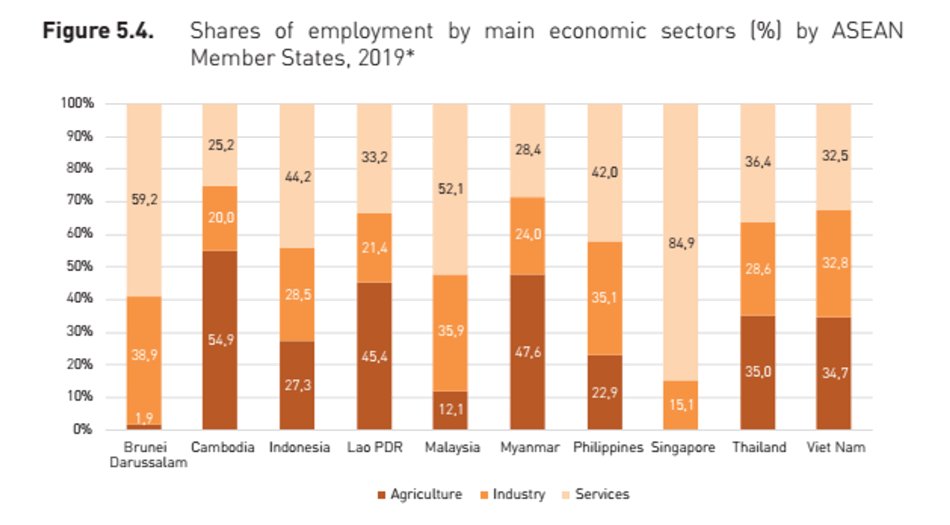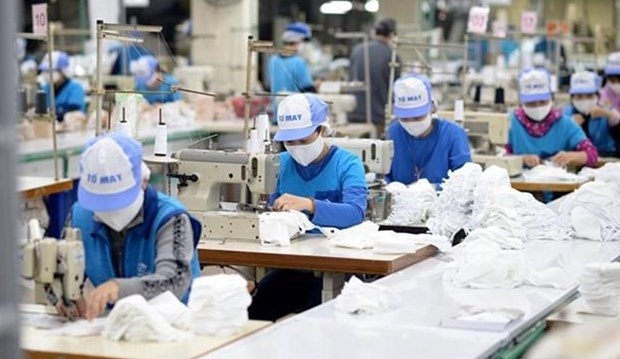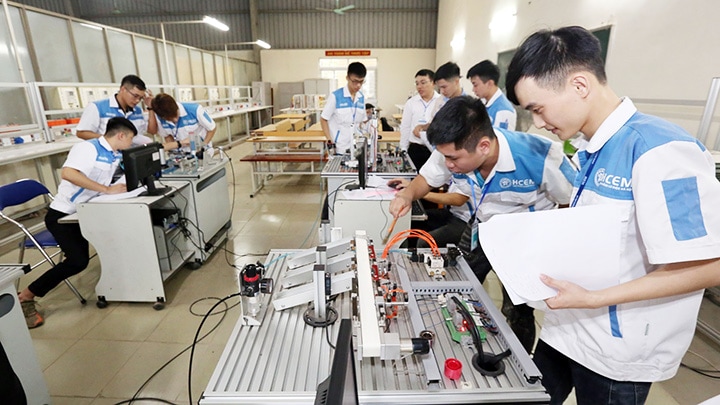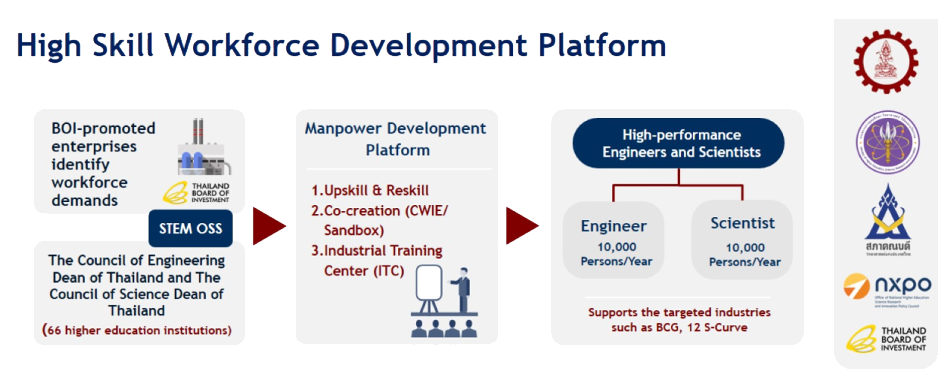Workforces readily available – training is key to success
The big advantage for foreign investors in Southeast Asia, apart from the sheer number of a workforce young in age, is the availability of those workers. Given that most countries in the region are developing nations, workers are keen to land reliable jobs, whereby foreign firms are generally considered more desirable employers in many cases. Also, since social security systems in most Southeast Asian countries are not yet as well developed as in the West, jobs that follow standard labor practices, including overtime payments, health insurance, paid holidays and mandatory severance packages, are in strong demand.


In Thailand, by the end of 2020, 37.9 million were employed, and around 12.6 million people are working in agriculture, more than 17 million people are working in the service and trade sector and around 8 million people are working in the manufacturing sector, the National Statistical Office said.

In Vietnam, the economy is based on large state-owned industries including textiles, food, furniture, plastics and paper, as well as telecommunications and electronics. While agriculture (and related sectors such as forestry and fishing) still dominates the economy with a workforce of about 19 million, manufacturing comes second with around 11.3 million workers.

Vietnam’s government has adopted a strategy for development of vocational training for the 2021-2030 period, aiming to raise the rate of laborers with diploma or certificates to 30 percent over the next five years and 35-40 percent by 2030. The government targets to increase access to vocational training to 40-45 percent of graduates of secondary schools, with at least 30 percent of them are female students by 2025. The rate of laborers with information and communication technology skill is expected to reach 80% by 2025 and 90 percent by 2030. There are new 70 high quality vocational facilities in planning through 2025. (photos by MOLISA Ministry of Labour, War Invalids and Social Affairs)
To achieve the above goals, Vietnam’s government will improve related institutions and state management of vocational training while stepping up digital transformation, reforming curricula, and upgrading training equipment for various types of vocational training. Vocational training will be developed in connection with enterprises and labor market, according to the strategy.
In Thailand, the Board of Investment (BOI) amended merit-based incentives scheme for competitive enhancement which includes research and development of technology and innovation development of technology and personnel including training and skills etc.
In November 2021, the Ministry of Higher Education, Science, Research and Innovation (MHESI), NXPO, the Board of Investment (BOI), the Council of Science Dean of Thailand and the Council of Engineering Deans of Thailand signed a Memorandum of Understanding “High-skilled Workforce Development Platform for Strategic Industries” for setting up a new platform in delivering skilled STEM workers to meet the demand and requirements of strategic industries.

In line with global developments, factories and businesses invested in Thailand and Vietnam naturally need to be on top of technical advancements in automatization and digitalization of workflow processes to ensure their competitiveness.
This means that staff has to be constantly trained by the corporations themselves to meet that goal because national education systems are not yet up to deliver enough qualified workers given the dynamics of this steady growth.
It is clear to foreign companies that investments in skills are playing a significant role in helping national economies to adjust to changes in working practices, advances in technology and challenges associated with globalization, so there is a win-win situation for a country providing an eager workforce and a company responding to unique opportunities by providing adequate training and learning. This strategy is not only benefitting an investor’s company, but is also successfully generating sustainable, decent and productive employment.






